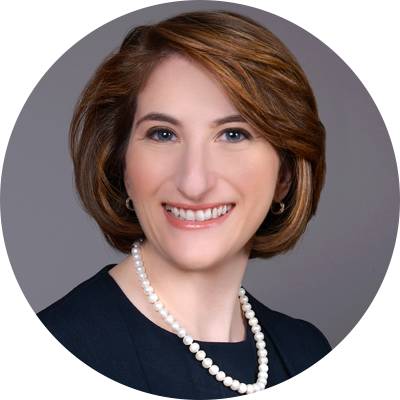
Countries / Territories
- 🌐
Related contacts

Managing Partner, United Kingdom
Related offices
Related contacts

Managing Partner, United Kingdom
Related offices
Related contacts

Managing Partner, United Kingdom
Related offices
By: Nadine Goldfoot
As the sun sets on Rio’s 2016 Olympics, we look at how Brazil fares against the rest of the world in HNWI growth and migration.
Compared to the growth of HNWI population in other parts of the world in 2015, Brazil performed poorly, losing 7.8 per cent of its HNWI population and 5.9 per cent of ultra-HNWI wealth (elsewhere ultra-HNWI wealth has gown more than the other wealth segments, both in 2015 and over the past four years).
Regionally, Brazil has the highest number of HNWIs in Latin America and third highest among BRIC nations. There were 198,426 HNWIs in Brazil in 2014, holding USD1 trillion in wealth. The number of Brazilian HNWIs is forecast to grow by 14.2 per cent, to reach 227,699 in 2019, while HNWI wealth is projected to grow by 28.1 per cent to reach USD1.3 trillion. The growth of Brazil’s UHNWI population over the next decade is expected to outperform the global average.
In the context of historic trends, Brazil shows extraordinary development over the last 10 years. Between 2004 and 2014, UHNWI population in Brazil grew by an astonishing 268 per cent from 1,148 individuals to 4,218 individuals. From 2014 to 2024, the number of UHNWIs is projected to grow by 49 per cent. The billionaire population in Brazil also grew remarkably, with a 267 per cent increase over the last 10 years; from 12 individuals in 2004 to 44 in 2014.
In 2015, across the whole of South America, the two cities with the highest growth of multi-millionaire, with net assets of at least USD10 million, are Sao Paolo and Rio de Janeiro. From 2004 to 2014, Sao Paolo saw growth of 296 per cent in the number of multi-millionaires, and Rio de Janeiro saw 251 per cent.
How does Brazil's wealth impact other markets?
According to research by McKinsey & Company, 70 per cent of Brazil’s HNWIs consume in Rio de Janeiro, São Paulo and Belo Horizonte. However, Latin American HNWIs held a higher proportion of their wealth outside of their home countries than the global average between 2010 and 2014, according to WealthInsight. Millionaires from Chile, Peru, Colombia and Argentina all held more than 33 per cent of their wealth outside their home country in 2014, while the global average was 20-30 per cent. Chilean HNWIs held the highest proportion of their investments outside their country at 38.4 per cent or USD100.5 billion in 2014, and it is one of the fastest growing in the region, recording a forecast compound annual growth rate of 4.8 per cent between 2015 and 2019.
Earlier in the year, it was reported that the downturn in Brazil’s local economy and rising crime rates are pushing many millionaires out of the country. According to Knight Frank research, 15 per cent of Latin American UHNWIs are thinking of changing their country of residence.
Key destinations for foreign investments include North America and Europe. Traffic from Brazil to Europe has grown 20 per cent each year since 2010, with the main destinations including France, Spain, Portugal and the UK – reflected by luxury property purchases by Brazilian buyers during 2014. The largest commercial property deal made by UHNWIs across the globe was the purchase of one single asset, 30 St Mary Axe, informally known as The Gherkin in London. It was purchased by Brazilian billionaire, Joseph Safra, at a price of USD1.15 billion in November 2014.
This deal certainly made Brazilian billionaires’ presence known on the global property market scene, evidencing the strength and the purchasing power of the Brazilian super-wealthy, and if the statistics are proved true that impact is set to significantly increase over the next decade.
Countries / Territories
- 🌐
Related contacts

Managing Partner, United Kingdom
Related offices
Related contacts

Managing Partner, United Kingdom
Related offices
Related contacts

Managing Partner, United Kingdom
Related offices
Explore more at Fragomen

Media mentions
Partner Emily Allen says the new H-1B lottery is driving earlier planning and more detailed preparation.

Blog post
Senior Business Immigration Consultant Ryaihanny Sahrom and Business Immigration Consultant II Fahimah Muhammad examine Indonesia’s newly launched Global Citizenship of Indonesia (GCI) program and its introduction of long-term and indefinite permanent residence pathways for members of the Indonesian diaspora.

Media mentions
Senior Immigration Manager Jonathan Hill notes that tighter UK visa compliance rules and new rating measures create additional challenges for universities.

Video
Partner Diana Quintas outlines key early career visa pathways and practical considerations for employers and graduates navigating entry-level immigration options.

Fragomen news
The Montreal office has added Partner Julie Lessard and Counsel Elsa Agostinho and Sophia Khanzadian to strengthen its immigration services.

Blog post
Destination Services Director Christine Sperr examines how housing market reforms, rent stabilization measures and cost-of-living dynamics in Saudi Arabia are influencing workforce mobility, compensation planning and long-term settlement strategies under Vision 2030.

Blog post
Manager Dr Adela Schmidt and Senior Associate Isabel Schnitzler analyse the European Commission’s infringement proceedings against Germany concerning its Vander Elst visa requirements for third-country nationals providing short-term cross-border services and explain why current compliance obligations remain unchanged.

Blog post
Latin America & the Caribbean Managing Partner Leonor Echeverria, Senior Associates Sarah Blackmore and Sonya Cole and Senior Regional Knowledge Manager Laura Weingort examine renewed energy interest in Venezuela and outline key immigration pathways, procedural constraints and strategic considerations for compliant talent deployment.

Media mentions
Senior Manager Andreia Ghimis highlights how the EU’s new migration strategy could create opportunities for employers while increasing compliance requirements.

Awards
Partner Julia Onslow-Cole is recognised in the Spears 500 guide to leading private client advisers, reflecting her experience advising high-net-worth individuals, families and global businesses on complex UK and European immigration and mobility strategies.

Media mentions
Partner Abeer Al Husseini discusses increased scrutiny of Saudi business visas in AGBI, highlighting stricter review of short-term entry used for operational work and the implications for regional employers.

Awards
Australia and New Zealand Managing Partner Teresa Liu, Partner Charles Johanes, Practice Leaders Hedvika and Leader Ben Lear and Senior Associate Hannah Scanlan are recognized in the 2026 edition of Doyle’s Guide as leading immigration practitioners in Australia.

Media mentions
Partner Emily Allen says the new H-1B lottery is driving earlier planning and more detailed preparation.

Blog post
Senior Business Immigration Consultant Ryaihanny Sahrom and Business Immigration Consultant II Fahimah Muhammad examine Indonesia’s newly launched Global Citizenship of Indonesia (GCI) program and its introduction of long-term and indefinite permanent residence pathways for members of the Indonesian diaspora.

Media mentions
Senior Immigration Manager Jonathan Hill notes that tighter UK visa compliance rules and new rating measures create additional challenges for universities.

Video
Partner Diana Quintas outlines key early career visa pathways and practical considerations for employers and graduates navigating entry-level immigration options.

Fragomen news
The Montreal office has added Partner Julie Lessard and Counsel Elsa Agostinho and Sophia Khanzadian to strengthen its immigration services.

Blog post
Destination Services Director Christine Sperr examines how housing market reforms, rent stabilization measures and cost-of-living dynamics in Saudi Arabia are influencing workforce mobility, compensation planning and long-term settlement strategies under Vision 2030.

Blog post
Manager Dr Adela Schmidt and Senior Associate Isabel Schnitzler analyse the European Commission’s infringement proceedings against Germany concerning its Vander Elst visa requirements for third-country nationals providing short-term cross-border services and explain why current compliance obligations remain unchanged.

Blog post
Latin America & the Caribbean Managing Partner Leonor Echeverria, Senior Associates Sarah Blackmore and Sonya Cole and Senior Regional Knowledge Manager Laura Weingort examine renewed energy interest in Venezuela and outline key immigration pathways, procedural constraints and strategic considerations for compliant talent deployment.

Media mentions
Senior Manager Andreia Ghimis highlights how the EU’s new migration strategy could create opportunities for employers while increasing compliance requirements.

Awards
Partner Julia Onslow-Cole is recognised in the Spears 500 guide to leading private client advisers, reflecting her experience advising high-net-worth individuals, families and global businesses on complex UK and European immigration and mobility strategies.

Media mentions
Partner Abeer Al Husseini discusses increased scrutiny of Saudi business visas in AGBI, highlighting stricter review of short-term entry used for operational work and the implications for regional employers.

Awards
Australia and New Zealand Managing Partner Teresa Liu, Partner Charles Johanes, Practice Leaders Hedvika and Leader Ben Lear and Senior Associate Hannah Scanlan are recognized in the 2026 edition of Doyle’s Guide as leading immigration practitioners in Australia.

